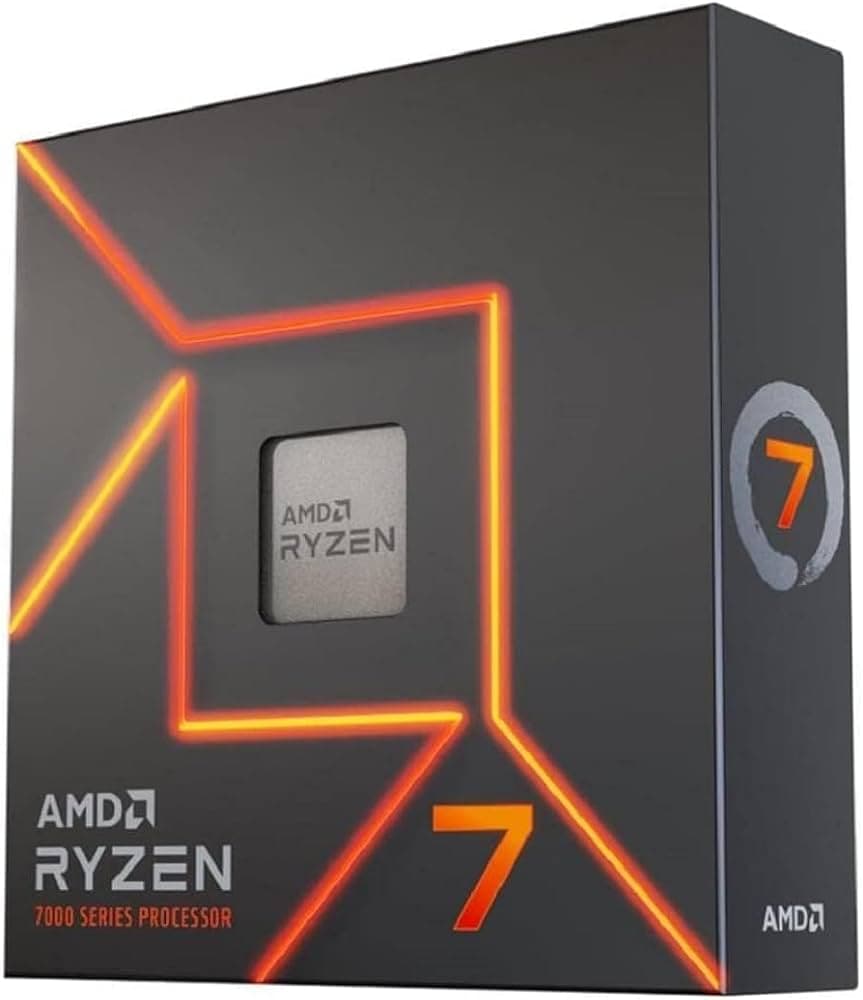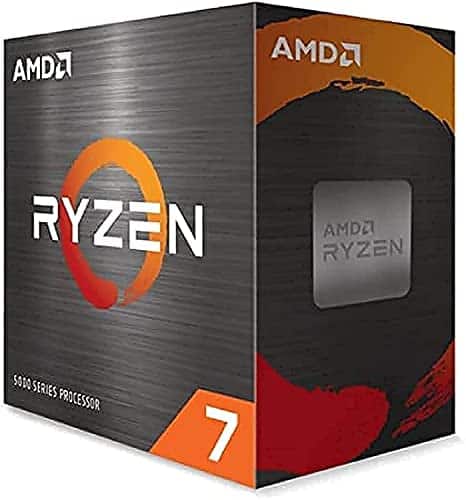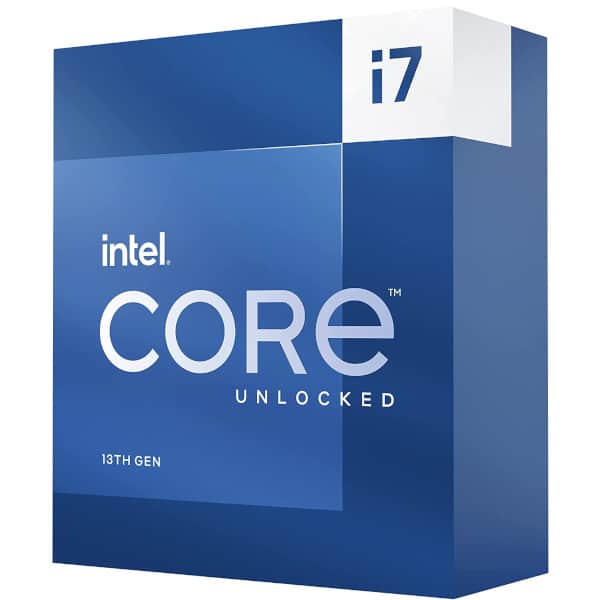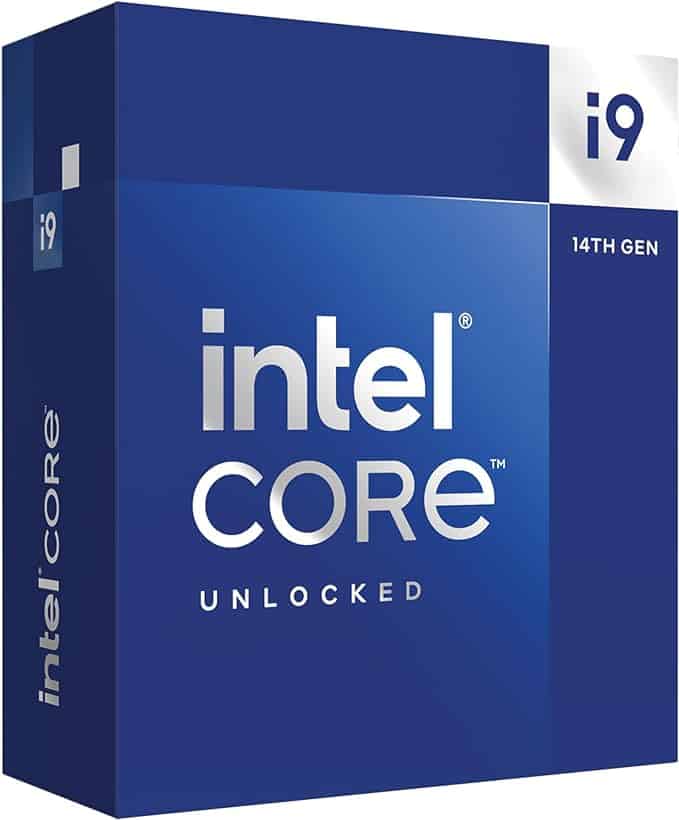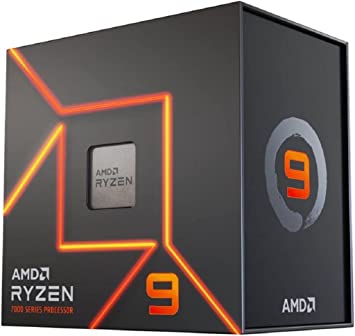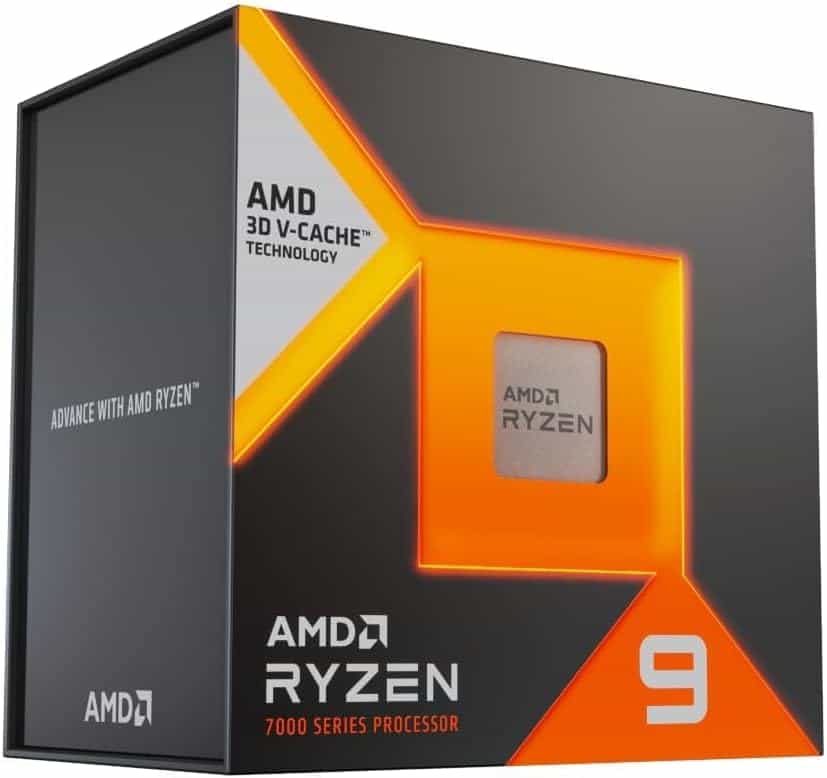Ryzen 7 9700X vs. Intel Core i9-13900K– how do they compare?
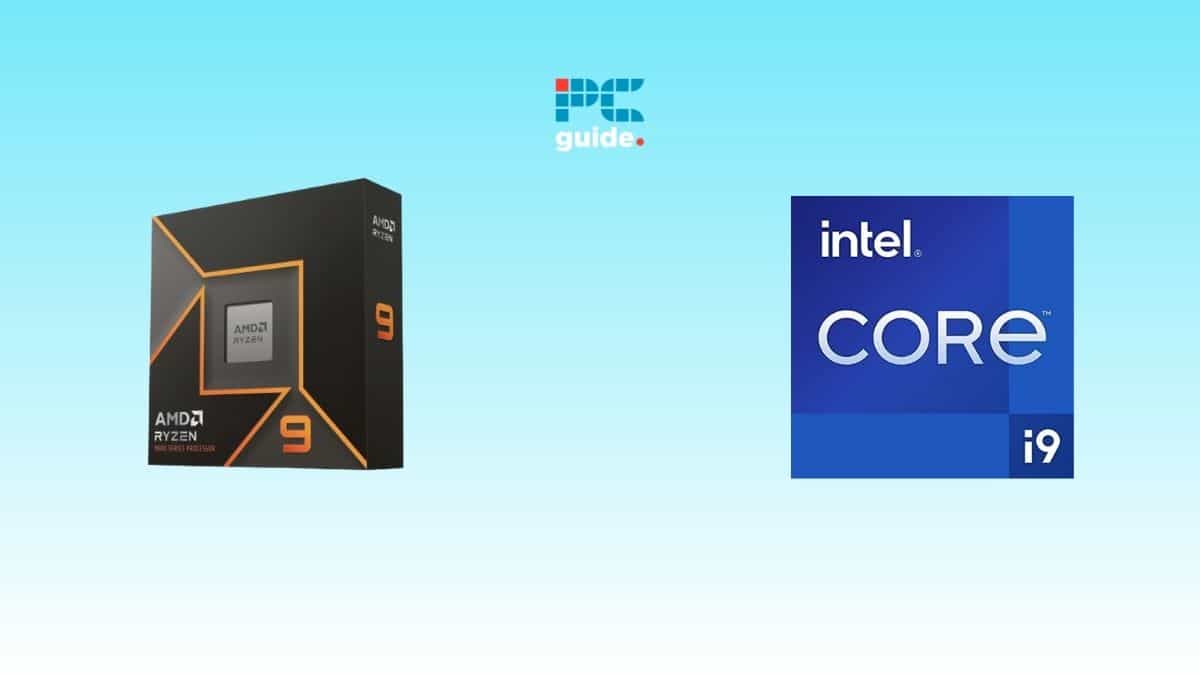
Table of Contents
The launch of the Ryzen 7 9700X is just around the corner, and if the early benchmark leaks are true, we're in for a ride, as the 9700X should take the mid-range value and performance ratio to the next level.
Initially, the delay of the Ryzen 9000 series took the community by surprise, but the big day is almost here, and many are wondering how these processors would fare against Team Blue flagship CPUs or, more specifically, the Intel Core i9-13900K.
Prime Day is finally here! Find all the biggest tech and PC deals below.
- Sapphire 11348-03-20G Pulse AMD Radeon™ RX 9070 XT Was $779 Now $739
- AMD Ryzen 7 7800X3D 8-Core, 16-Thread Desktop Processor Was $449 Now $341
- ASUS RTX™ 5060 OC Edition Graphics Card Was $379 Now $339
- LG 77-Inch Class OLED evo AI 4K C5 Series Smart TV Was $3,696 Now $2,796
- Intel® Core™ i7-14700K New Gaming Desktop Was $320.99 Now $274
- Lexar 2TB NM1090 w/HeatSink SSD PCIe Gen5x4 NVMe M.2 Was $281.97 Now $214.98
- Apple Watch Series 10 GPS + Cellular 42mm case Smartwatch Was $499.99 Now $379.99
- ASUS ROG Strix G16 (2025) 16" FHD, RTX 5060 gaming laptop Was $1,499.99 Now $1,274.99
- Apple iPad mini (A17 Pro): Apple Intelligence Was $499.99 Now $379.99
*Prices and savings subject to change. Click through to get the current prices.
In this article, we'll set out to answer that question and see whether the Zen 5 architecture's 16% IPC uplift would be enough to tackle the 13th-generation powerhouse or face defeat.
Before we get started, if you're interested in beating the bots, we've listed all the popular retailers in one place so you can quickly order a 9700X as soon as it hits the shelves.
AMD Ryzen 7 9700X
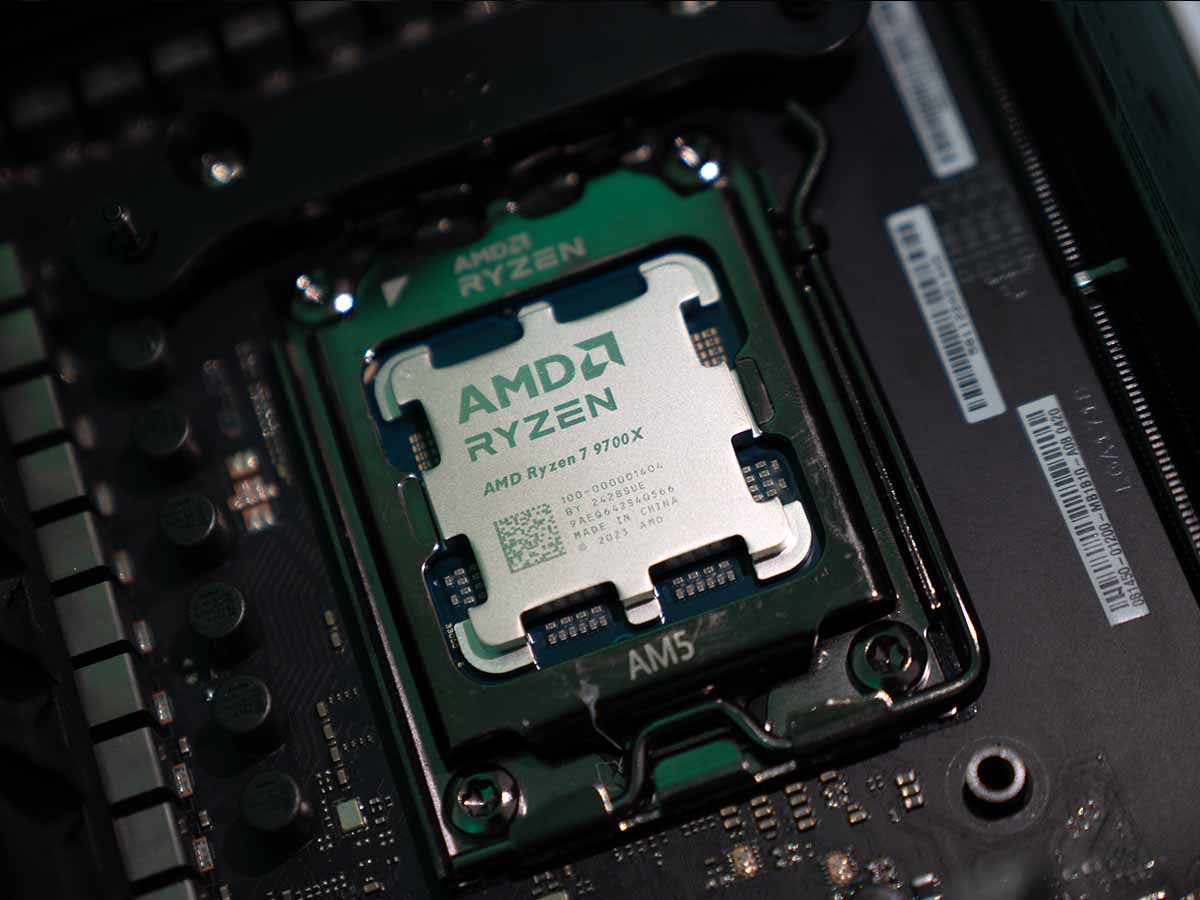
Cores
8
Threads
16
Boost clock speed
5.5 GHz
Base clock speed
3.8 GHz
L3 Cache
32 MB
TDP
65 W
Platform
AMD Socket AM5
Shop on Amazon
CHECK PRICEIntel Core i9-13900K
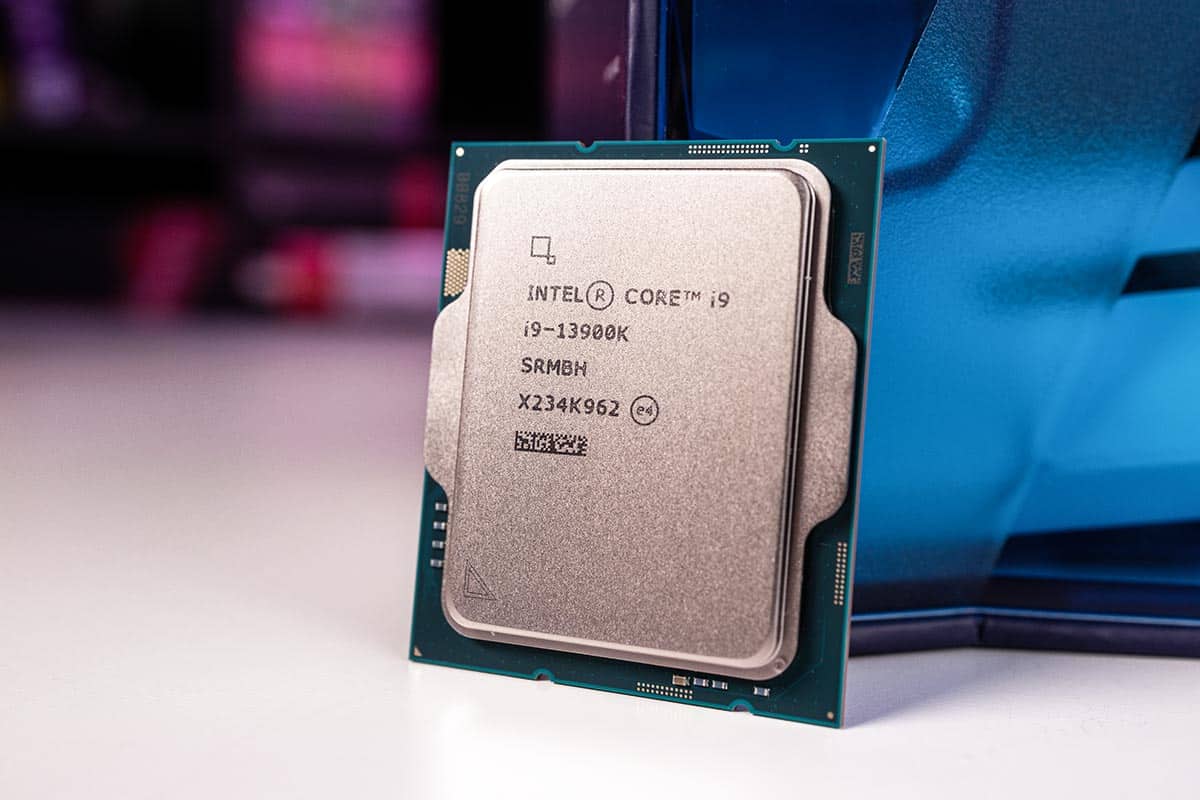
Cores
24 (8P-16E)
Threads
32
Boost speed
P-Core 5.8GHz / E-Core 4.3GHz
Base speed
P-Core 3.0GHz / E-Core 2.2GHz
L3 Cache
36 MB
TDP
253 W
Platform
Intel Socket 1700
Shop on Amazon
CHECK PRICESpecification
To see the hardware difference between the two processors, we've listed their specifications below.
| Specifications | Ryzen 9 9700X | Intel Core i9-13900K |
| Architecture | Zen 5 | Raptor Lake-R |
| Socket | AM5 | LGA1700 |
| Process | TSMC 4nm FinFET | Intel 7 (10nm) |
| Cores | 8 | 24 |
| Threads | 16 | 32 |
| Base clock speed | 3.8 GHz | E-core: 2.2 GHzP-core: 3.0 GHz |
| Boost clock speed | 5.5 GHz | 5.8 GHz |
| L3 Cache | 32 MB | 36 MB |
| TDP | 65W | 125W / 253W |
| Integrated graphics | AMD Radeon Graphics | Intel UHD Graphics 770 |

Foundations and cores
On a fundamental level, these processors are different as different companies produce them and have different architectures and technologies. The 9700X is based on the Zen 5 architecture, while the 13900K is based on Raptor Lake from Intel.
This means the 13900K has the Intel 7 lithography or 10nm CPU process technology, whereas the 9700X uses much smaller 4nm processes. The latter can house many more transistors on each CPU core, making the processing faster and more efficient.
However, the 13900K has 16 more cores, meaning it should have a higher transistor count than the 9700X. Its 10nm size also means it'll need more power to operate, which we'll discuss in the TDP section.

We do know that the 13900K is a multi-core and single-core powerhouse, as we experienced its in-game and synthetic performance during our 13900K review. So, due to having more cores and threads, the 13900K should have better multi-threaded performance. However, the 9700X was able to beat the 14900K in single-core results, meaning it should have better in-game performance than the 13900K.
Clock speed
The clock speed tells you how many instructions a processor can execute in a second, hence its speed. The higher the clock speed, the better the CPU’s processing will be. The 9700X has a base clock speed of 3.8 GHz, while the 13900K has 2.2 GHz and 3.0 GHz for its E—and P-cores, respectively.
This means that the 9700X can execute 0.8 billion more instructions at base power and speed than the 13900K, but the latter has a faster boost clock speed of 5.8 GHz. Compared to the 9700X's 5.5 GHz, a difference of 0.3 GHz might not seem much, but multiple cores would be running at a higher frequency, so the combined output would be greater.
A higher clock speed also means a greater thermal output and the 13900K can get hot. We recommend using the best CPU cooler for the i9-13900K to keep it tame and prevent thermal throttling.
Cache and TDP
The 13900K has a 36 MB L3 cache, which is only 4 MB more than 9700X's 32 MB cache. That said, the 9700X has a faster L1 and L2 cache, meaning more data can travel to and from the cache.
The 13900K has the Intel Smart Cache, meaning all cores have access to the lower-level cache, which means reduced access time and better efficiency. So, if there is a difference, to begin with, the difference in performance due to the cache would be neck and neck.
The TDP, on the other hand, is a whole other matter, as the 13900K has a base power of 125W and a maximum power of 253W. These figures make the 9700X's 65W TDP look like nothing, and while that could go up if you overclock it, it still won't reach so high, making the 9700X the more power-efficient option.
Graphic capabilities
The Ryzen 7 9700X comes with AMD Radeon Graphics, while the 13900K comes with Intel UHD Graphics 770. So, both processors have integrated graphics, meaning you don't need a discrete GPU to boot your system, and you should be able to complete basic tasks like browsing the internet or documenting.
Playing games should also be possible, but not demanding titles like Cyberpunk 2077. On top of that, the maximum resolution you might be able to play at would be 1080p, and the FPS would depend on how graphically demanding the game is.
That said, to get the best performance, we recommend using the best GPU for 9700X and 13900K. These pairings should be able to handle even the most graphically demanding titles and enable you to play at UHD resolution.
9700X price estimation
As mentioned before, AMD has delayed the launch of the Ryzen 9000 series processors. You'll have to wait until 8 August for the Ryzen 7 9700X to be released along with the 9600X, and then we'll know their launch price.
Since we're only a handful of days away from the launch, we have some price leaks. According to a Chinese retailer, the 9700X could launch with a price tag of $299, and another leak also claims the same number, which, if true, would be a game-changer.
That said, take this information with a grain of salt, as the prices could change at the last second, and we could see very different numbers accompanying these processors.
How have these CPUs changed from the last generation?
| Specifications | 9700X | 7700X | 5700X |
| Cores | 8 | 8 | 8 |
| Threads | 16 | 16 | 16 |
| Cache | 32 MB | 32 MB | 32 MB |
| Max boost clock | 5.5 GHz | 5.4 GHz | 4.6 GHz |
| Base clock speed | 3.8 GHz | 4.5 GHz | 3.4 GHz |
| TDP | 65W | 105W | 65W |
| Architecture | Zen 5 | Zen 4 | Zen 3 |
We compared the 9700X with the 7700X and the 5700X, and the most significant difference between the three is that they are based on different architectures. All of them have the exact core count, threads, and cache, but the 7700X has the highest TDP, which is weird in the X700 lineup.
The 7700X also has the highest base clock speed, while the 9700X has the highest boost clock speed.
We compared the 13900K to its predecessors, the 12900K and 11900K.
| Specifications | 13900K | 12900K | 11900K |
| Cores | 24 | 16 | 10 |
| Threads | 32 | 24 | 16 |
| Cache | 36 MB | 30 MB | 20 MB |
| Max boost clock | 5.8 GHz | 5.2 GHz | 4.9 GHz |
| Base clock speed | E-core: 2.2 GHzP-core: 3.0 GHz | E-core: 2.4 GHzP-core: 3.2 GHz | E-core: 2.8 GHzP-core: 3.7 GHz |
| TDP | 125W / 253W | 125W / 241W | 125W / 150W |
| Architecture | Raptor Lake | Alder Lake | Rocket Lake |
The lower you go, the more hardware drops, meaning the 13900K has the most beefed-up specifications out of the three processors. It also has the highest TDP of 253W, compared to 12900K's and 11900K's 241W and 150W TDP, respectively.
The same pattern is seen for the boost clock speeds, but the biggest difference is their architecture: The 11900K has 14nm processes, while the other two have Intel 7 lithography.
Alternatives to the 9950X and the 13900K
There are some processors that you could opt for instead of the 9950X and the 13900K, and we've listed them below. We've reviewed some of these alternative options, and you can also check out their in-depth reviews.
9700X alternatives
-
AMD Ryzen 7 7700X
- Cores: 8
- Threads: 16
- Boost clock speed: 5.4 GHz
- Base clock speed: 4.5 GHz
- L3 Cache: 32 MB
- TDP: 105W
-
AMD Ryzen 7 5700X
- Cores: 8
- Threads : 16
- Boost clock speed : 4.6 GHz
- Base clock speed: 3.4 GHz
- L3 Cache: 32 MB
- TDP: 65W
-
Intel Core i7-13700K
- Cores: 16
- Threads: 24
- Platform: Raptor Lake-S
- Base Clock Speed: 100 MHz
- Boost Clock Speed: 5.4 GHz
- L3 Cache: 30 MB (shared)
13900K alternatives
-
Intel Core i9-14900K
- Cores: 24 (8P-16E)
- Threads: 32
- Boost clock speed : P-Core 5.8GHz / E-Core 4.4GHz
- Base clock speed: P-Core 3.2GHz / E-Core 2.4GHz
- L3 Cache: 36 MB
- TDP: 253W
-
AMD Ryzen 9 7950X
- Cores: 16
- Threads: 32
- Boost clock speed: 5.7 GHz
- Base clock speed: 4.5 GHz
- L3 Cache: 64 MB
- TDP: 170W
-
AMD Ryzen 9 7950X3D
- Cores: 16
- Thread: 32
- Base Clock Speed: 100 MHz
- Boost Clock Speed: 5.7 GHz
- L3 Cache: 128 MB (shared)
- TDP: 120 W
Which one should you go for?
While this may seem like a difficult question to answer, there are some big differences between the two, which present the answer when you factor in.
First, there is no denying that the 13900K is more juiced up than the 9700X and is more capable of handling resource-intensive workloads. However, that level of performance and its 10nm CPU process technology also give it a really high TDP and make it run extremely hot. So, if the leaks are true, it is more expensive than the 9700X, and it is more expensive to run as well.
That said, if you've got the budget and want a powerhouse capable of knocking out anything you put in front of it, the 13900K is the answer to all your worries.
On the other hand, while the 9700X might not have as many cores and threads, it has the brand-new Zen 5 architecture, meaning it should be able to make the most out of its hardware, giving it a well-rounded position. It has a humble 65W TDP, which means running it won't be expensive, and you should be able to easily pair it with the best graphics cards for high-end gaming and professional work.
Lastly, the 9700X is based on the AM5 platform, which is supported until 2027, while the 13th-generation processors use the LGA1700 socket. This means the path to upgrade ends with the 14th-generation CPUs, which are only refreshers with slightly better specifications. So, the 9700X is better if you want your options open.
I reached out to Jack Howarth and Seb Kozlowski and asked them what they thought about this new mid-range CPU vs. the comparatively old high-end CPU, and this is what they had to say:
The Ryzen 9 9700X is the newer of the two CPUs, and is equipped with 8 multi-threaded cores capable of up to 5.5GHz turbo speed. Which is pretty good for an X700 Ryzen CPU. However, if you compare this CPU to the 13900K, you realise that the number of CPU cores pale in comparison.
The 13900K features 24 cores and 36 threads, with the core config being 8 P-cores and 16 E-cores. The performance cores can boost all the way up to 5.7GHz, with the E-cores trailing behind at 4.3GHz. This is all well and good but what does that mean for performance?
It’s unlikely that the 9700X will beat the 13900K in terms of multi-core workloads, we won’t actually know until the CPU releases. However, since recent benchmarks have suggested that the 9950X is on-par with the 14900K (or there abouts) it’s not unreasonable to assume that the 9700X may be able to outmatch the 13900K in terms of single core performance. Again, we won’t know until the release of the 9000 series.
If you want a CPU that can chop through multi-core workloads at a rapid pace, then the 13900K might be the selection for you. If you want a more affordable “office” CPU, then the 9700X takes the cake. The performance improvements that Zen 5 brings over Zen 4 could very well propel the Ryzen 9000 into the new gaming favourite – As intel faces issues with 14th and 13th generation CPUs at the minute.
Jack Howarth
The Ryzen 7 vs Intel i9 is on a different level of tiers but offer a variety of performance levels and value. Then new 9700X is a more middle of the pack option sporting 8 cores and 16 threads able to clock up to 5.5 GHz while only running at 65W. That should provide a strong value choice in a combination between gaming and productivity tasks.
Whilst the Intel CPU is better known for being a productivity workhorse, with the 24 cores in total it also for a combination of performance and efficiency. Capable of running up to 5.8GHz but need up to 253W of power to do so does make it a bit more expensive to run and with more cooling behind it, but it should get the job done. So as usual the AMD choice is a good gaming and general purpose option compared to Intel’s productivity capabilities.
Seb Kozlowski



